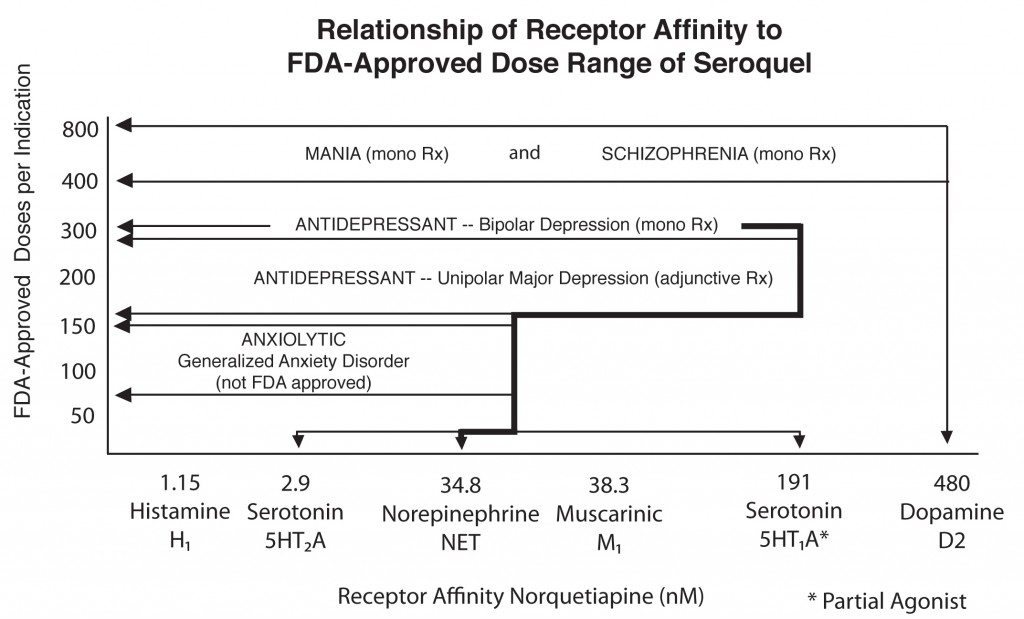Quetiapine is Effective Across a Spectrum of Illnesses
The atypical antipsychotic quetiapine (Seroquel or Seroquel XR) has a range of efficacy in a number of illnesses, depending on the size of the dose given. Read about some of its uses below, including as an adjunct to antidepressants in unipolar depression; as a treatment for generalized anxiety disorder (GAD) and post-traumatic stress disorder (PTSD); and, at higher doses, as a treatment for mania and depression. Some of its potential mechanisms of action are described as well.

Quetiapine's actions on various receptors in the brain (bottom axis) are responsible for its effects in different illnesses
Quetiapine as an adjunct to antidepressants in unipolar depression
Posters at the American Psychiatric Association meeting in San Francisco in May 2009 showed new data from a series of studies of quetiapine in unipolar depression that showed the drug in monotherapy (at 150mg & 300mg) was significantly more effective than placebo. Studies were also positive when quetiapine was used as an adjunct compared with placebo for patients showing inadequate or incomplete responses to antidepressants such as selective serotonin reuptake inhibitors (SSRIs).
Read more
Treating Generalized Anxiety Disorder
Generalized anxiety disorder (GAD) is a prevalent illness often associated with considerable discomfort and dysfunction. It often co-occurs with bipolar disorder. Traditional treatments of the primary syndrome (occurring in the absence of bipolar disorder) involve serotonin-selective antidepressants and serotonin-noradrenergic reuptake inhibitors such as venlafaxine (Effexor) or duloxitine (Cymbalta). While these are often useful and lead to considerable improvement, they often do not lead to full remission of somatic or accompanying symptoms of insomnia.
Alternative treatment possibilities include the anticonvulsant pregabalin (Lyrica), which has been found effective in four placebo-controlled studies in GAD. A poster presentation by Joshi et al. at the American Psychiatric Association meeting in San Francisco in May 2009 also reported that pregabalin was more effective in reducing sleep disturbance than venlafaxine. Pregabaline is FDA-approved for seizures and fibromyalgia, but not for GAD or pain syndromes. Another treatment possibility is quetiapine (Seroquel), where not only have there been positive efficacy in placebo-controlled studies of patients with GAD, but the patients also experienced improvement in sleep.
Read more

